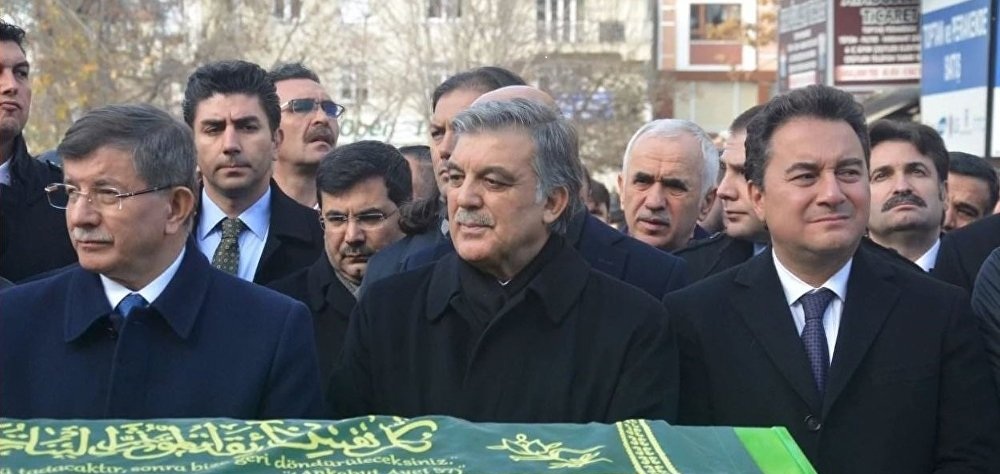Alwaght- After 18 years of running unchallenged in the Turkish politics, President Recep Tayyip Erdogan is now being threatened with removal from power not only by his traditional rivals but also by men who once were his allies and friends. Perhaps Erdogan never thought that those who had an undeniable role in the flourishing of the Justice and Development Party (AKP) once launch an uprising against him and his ruling party. They are strongly establishing parties that have a common aim: Defeating and removing Erdogan from power.
It was in 2010 that the first signs of division showed themselves inside the AKP between Erdogan and the then President Abdullah Gul, who was one of the founding members of the ruling party. At that time, Gul expressed, though not officially, the intention to form a new party but he did not go ahead with the plan. The next division showed itself when in May 2016 Ahmet Davutoglu clashed with Erdogan and resigned from the AKP leadership. The resignation resulted in Davultoglu’s marginalization until September 13, 2019, when he said he cut off ties with the ruling party and planned to form an independent party. Next came the resignation of Erdogan’s economic czar Ali Babacan, who in July last year resigned and announced a plan to launch a new party. The move won serious favor with Gul.
DEVA party; Future Party’s sister and AKP’s rival
Ali Babacan, who also served as Erdogan’s aide formerly and was one of the economic architects of the AKP, in July 2019 separated ways with his party following deep differences with Erdogan, last week unveiled his DEVA party. DEVA, strongly advocated by Gul, has four main founders, all of whom were former top members at the AKP, reports suggest. Sadullah Ergin, the former leader of the AKP’s parliamentary commission, Besir Atalay, the former interior minister, Nihad Ergon, a former senior official at the party, and Babacan himself constituted the founding board.
Foundation of DEVA party by Babacan, who is known as the mastermind of Erdogan’s economic team at the time of economic growth, represents big damage to the Turkish president. Babacan and Gul entered politics along with Erdogan and broke with the president as time passed by.
In 2002, Babacan represented Ankara from the AKP in the Turkish parliament. He was vital to Erdogan’s economic triumphs as he served as the minister of the economy. Babacan was the youngest member of the Erdogan cabinet when the AKP assumed power in the early 2000s. He was Erdogan’s European affairs aide and was a patron of the Turkish membership in the European Union. The former economy minister has a Ph.D. in industrial engineering from Northwestern University in Illinois, US and owns a big textile company in Turkey.
Same aim: wresting power from Erdogan
Although Erdogan more than once insisted that founding new parties by the AKP rebels will not impact the ruling party’s election position and also labeled Davutoglu and Babacan as “traitors”, nobody like him is aware of the scale of threat the allies-turned-foes can pose to his power grip.
Definitely, Davutoglu has substantial popularity among the AKP elites and academics and now a large number of the currently-serving Erdogan administration officials appreciate his leadership potentials and power. In the future elections, many of them could back him, to Erdogan’s frustration.
The hardest blow to Erdogan and the AKP could be dealt by Babacan, who has Gul’s patronage. The two, and particularly Gul, have considerable support among the AKP’s old guard and the citizens traditionally backing the ruling party. So, from now a large part of the AKP’s vote should be considered as DEVA’s in the next elections.
Regardless of the two parties foundation that is an outcome of the inter-AKP division, the situation can be hard for Erdogan to save power if we know that inside the Turkish political community there is resolution to curtail his authoritarianism. Actually, over the past few years, there has been a consensus among the politicians who seem to agree that no matter they have different political visions, they have to unite in the face of AKP and Erdogan in person and remove him from power he has been holding for nearly two decades.
In the next elections, a union bringing Republican People’s Party, People’s Democratic Party, iye Party, Future Party, and DEVA party in a single camp can end AKP’s two-decade parliamentary domination. The same alliance can knock out Erdogan as the Turkish politics strongman in the 2023 presidential elections.



























